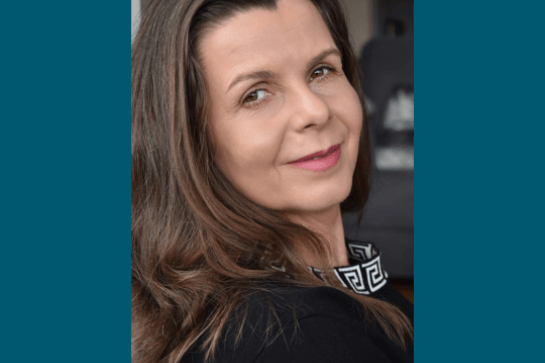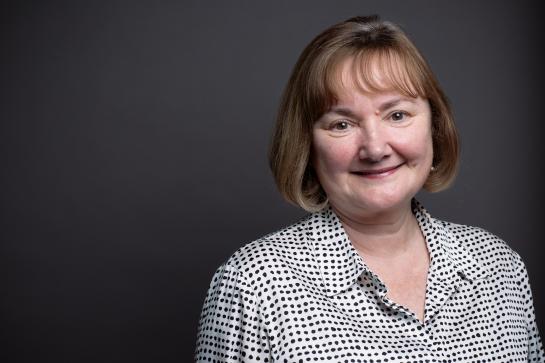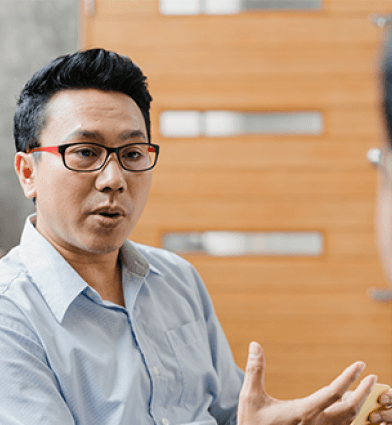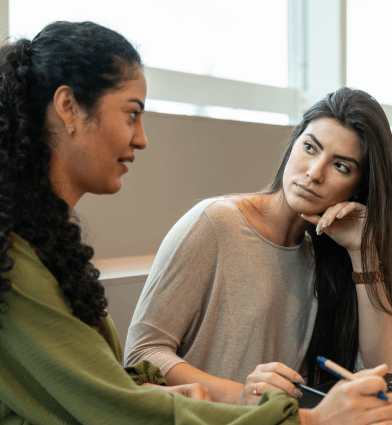
Developing our emotional intelligence, self-awareness, and empathy to help convert challenging conversations into transformative ones.
In uncertain times, sensitive and potentially challenging conversations can become increasingly daunting.
The Transformative Conversations Programme is a series of three half-day workshops with reflection and asynchronous working between sessions to support participants in developing an understanding of context, self and others and to build the confidence to have challenging conversations within their teams and institution.
A focus on the skills required to build authentic and positive relationships which acknowledge diversity, respect lived experiences and address unacceptable behaviour, will help those involved navigate their way through issues as part of transformative conversations that are both supportive and challenging.
Focusing on what we want to create – the new reality that we aspire to be a part of – can transform the conversations that we are currently having for positive change.
To equip themselves to navigate challenging conversations effectively, leaders and managers need to develop emotional intelligence, enhance self-awareness, build empathy, and hone their ability to influence changes in behaviour.
Share and celebrate your achievements with digitally recognised learning
For much of our portfolio for 2022-23 the learning of event attendees and programme participants and conference, symposia and colloquia presenters will be digitally recognised.
This makes it easy for you to share and celebrate your achievements by adding them to your email signature or including them in your social profiles including Twitter, LinkedIn and Facebook. Your learning certificates can also be easily verified and downloaded as a pdf.
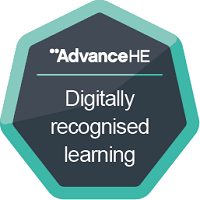
How is the programme delivered?
The programme is delivered in three half-day virtual workshops with reflection and asynchronous working between sessions.
- Workshop 1: Key Principles and preparing ourselves for transformative conversations
- Workshop 2: Developing Self and Others
- Workshop 3: Understanding and Practice
Each workshop will explore the challenges of having a range of difficult conversations, with particular attention to what works well.
Difficult conversations may include those exploring the lived experiences of marginalised groups or encouraging the exchange and dissemination of different ways of thinking about and new approaches to key equality, diversity and inclusion challenges.
Additionally, conversations within the institution across faculties, schools or departments can often involve discussion about the use of limited resources, strategy and priorities or organisational structure and performance improvement.
The workshops will aim to help participants increase their confidence in having difficult conversations and develop the ability to ask more transformative questions to face challenges in a new creative way.
The workshops will also help participants to look at ways to change the language used when addressing difficult subject areas to unlock a possibility of seeing things differently and instigating different outcomes.
What are the learning outcomes of the programme?
By the end of programme, delegates should be able to:
- Take a proactive approach to handling challenging workplace situations and benefit from improved relationships
- Explore, practice, and apply practically the steps involved in transforming conversations.
- Prepare for conversations more confidently and assertively using an appreciative and strengths-based approach.
- Understand the range of contexts in which difficult conversations can manifest and apply a conscious and appropriate level of distinction between them.
- Implement a range of techniques to defuse potentially challenging or hostile reactions.

Who is the programme for?
The Transformative Conversations Programme will benefit leaders in higher education who wish to have better conversations that build strong relationships and improve organisational performance and is broadly aimed at participants up to and including head of department/school level. The facilitation team will pay close attention to the diversity of the cohort, their roles and experience ensuring that the content focusses on supporting the conversations that participants need to be having.
These might include those difficult and hard-to-have conversations for example:
- Discussions to support the mental wellbeing of staff and students
- Discussions around resource utilisation, performance management or team or organisational restructuring
- Discussions around complex projects or strategic direction of activity
Delivery team
Podcast
Hear from the delivery team
In this introductory podcast, programme facilitators Barbara, Kim and Clare reveal their 'top tips' for approaching challenging conversations.
.jpg)
